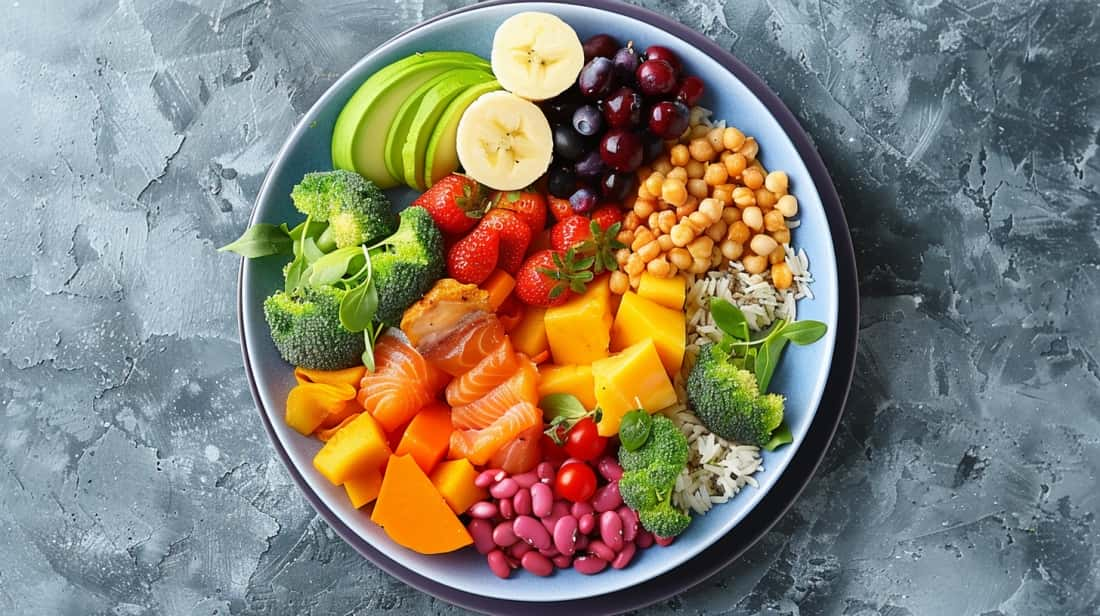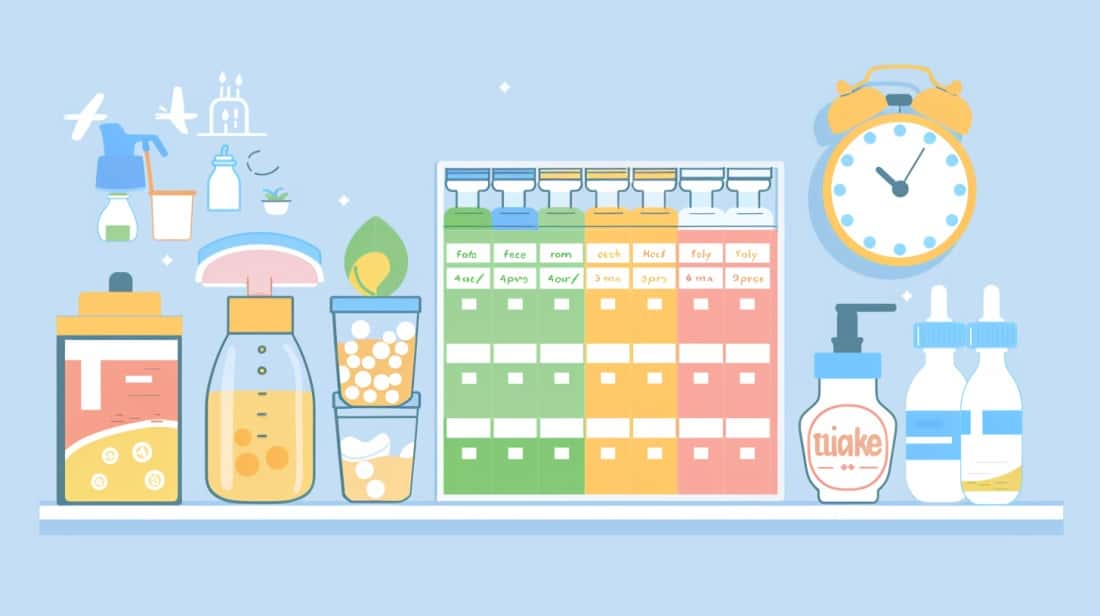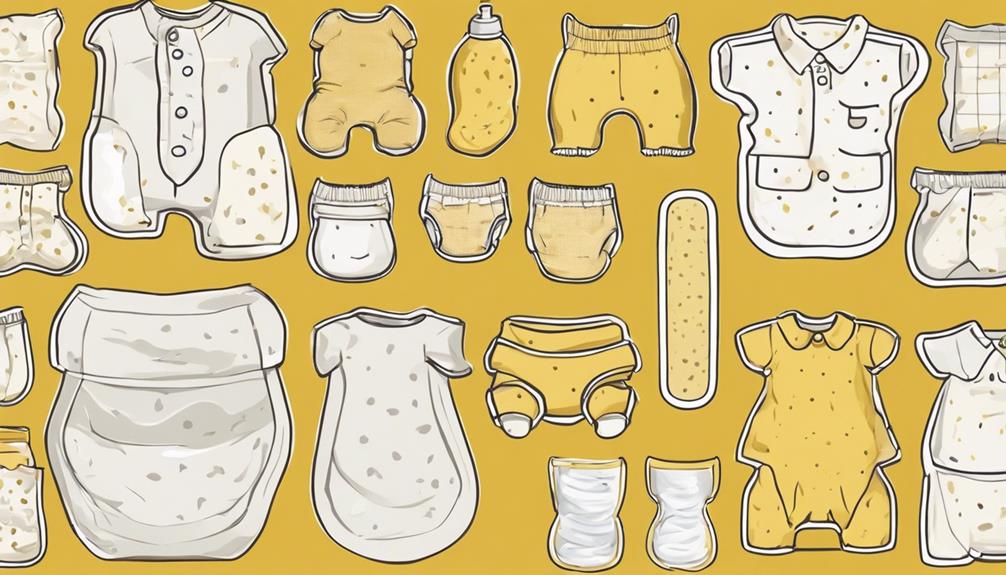When it comes to starting on a non-dairy breastfeeding diet, we've all heard the saying, 'You are what you eat.' But what does this mean for new moms exploring the world of lactose intolerance or cows milk protein allergy while nurturing their little ones?
Join us as we uncover the essential components of a dairy-free diet tailored for breastfeeding mothers, offering practical tips and insights on maintaining a balanced nutrient intake for both mom and baby.
Key Takeaways
- Consult healthcare provider before starting dairy-free diet for breastfeeding
- Identify signs of dairy allergy in babies to address promptly
- Substitute dairy with plant-based alternatives for breastfeeding moms
- Build a supportive environment for successful dairy-free breastfeeding journey
Benefits of Non-Dairy Breastfeeding Diet
Embracing a non-dairy breastfeeding diet offers a multitude of benefits for both infants and lactating mothers. For babies with cow's milk protein allergy, a dairy-free diet can help alleviate symptoms like excessive crying and skin irritations. Similarly, lactating mothers experiencing dairy allergy or intolerance may find relief from symptoms such as headaches and bloating by eliminating dairy from their diet while breastfeeding.
Consulting with healthcare providers before making significant dietary changes during breastfeeding is vital to guarantee proper nutrient intake for both the mother and the baby. Opting for a non-dairy breastfeeding diet becomes essential for mothers with babies sensitive to dairy products, supporting their health and overall well-being.
Understanding Dairy-Free Breastfeeding Diet

To support infants with dairy sensitivities, a dairy-free breastfeeding diet excludes common dairy products like cow's milk, cheese, yogurt, and whey protein. When following a dairy-free breastfeeding diet, it's important to be aware of hidden sources of dairy in processed foods, such as casein or lactose. For those looking for alternatives to cow's milk, options like almond milk, soy milk, or coconut milk can be suitable replacements.
Understanding cows' milk protein allergy and its impact on breastfeeding can help mothers make informed decisions about their diet. Creating a meal plan that focuses on whole foods like fruits, vegetables, lean proteins, and grains can guarantee a balanced dairy-free diet while breastfeeding. Remember, consulting with a healthcare provider before starting an elimination diet is vital to guarantee adequate nutrition for both mother and baby.
Practical Tips for Dairy-Free Breastfeeding
Let's navigate the dairy-free breastfeeding journey with practical tips to guarantee a smooth and healthy experience for both mother and baby. Consulting a healthcare provider before starting a dairy-free diet while breastfeeding is important to make sure proper nutrition.
It's important to be aware of signs of dairy allergy in babies, such as excessive crying, mucous production, and skin irritations. Remember that dairy elimination from your diet can take up to 21 days to clear from breast milk completely.
When shopping for food products, carefully check ingredient lists for hidden dairy names like casein, curds, and whey to avoid any accidental intake. Maintaining a balanced diet is key, so consider dairy-free recipes and meal plans to meet your nutritional needs while breastfeeding.
Including sources of vitamin D like fortified coconut milk can help support both you and your baby during this dairy-free journey.
Dairy Substitutions for Breastfeeding Moms

Breastfeeding moms can easily swap cow's milk for plant-based alternatives like almond, oat, or coconut milk to meet their dairy-free needs. These alternatives are rich in nutrients and can be used in various recipes without compromising taste or texture.
When it comes to baking or cooking, dairy-free margarine serves as an excellent substitute for butter, making it a suitable option for lactose-intolerant or dairy-sensitive individuals. Additionally, cocoa butter or coconut oil can be utilized as dairy-free alternatives for those seeking to avoid dairy products in their culinary creations.
For a cheesy flavor without actual cheese, nutritional yeast is a fantastic dairy-free option that breastfeeding moms can incorporate into their dishes. For those craving sweet treats, dairy-free chocolate made with plant-based milk is readily available.
These non-dairy alternatives provide a delicious way to indulge in desserts without consuming dairy products, ensuring breastfeeding moms can still enjoy a variety of treats while adhering to a dairy-free diet.
Building a Support System for Dairy-Free Breastfeeding
Handling a dairy-free breastfeeding diet successfully involves establishing a robust support system to tackle challenges that may arise. Family and friends' understanding and encouragement are crucial for those managing a dairy-free diet while breastfeeding. The severity of dairy intolerance varies among individuals, making it essential to have a support system that respects and supports dietary needs. Challenges like holiday gatherings or social situations can be intimidating for those on a dairy-free diet, but with a strong support network, these situations can be managed effectively.
Switching to a dairy-free diet may seem overwhelming at first, but having family support and access to dairy-free recipes can make the process smoother. Sharing dairy-free eating experiences with loved ones can foster a sense of community and understanding. Essentially, a supportive environment can make the journey of dairy-free breastfeeding more manageable and enjoyable, turning what may seem like obstacles into opportunities for growth and connection.
Frequently Asked Questions
How Do I Start a Dairy Free Diet While Breastfeeding?
We eliminate dairy from our meals and snacks to start a dairy-free diet while breastfeeding. Reading labels helps identify hidden dairy in processed foods. Consulting a healthcare provider is essential before making dietary changes to meet our nutritional needs.
Will Cutting Out Dairy Help My Breastfed Baby?
Cutting out dairy may help your breastfed baby if they have cow's milk protein allergy or intolerance. Symptoms like colic, eczema, and reflux can improve. Consult a healthcare provider before starting a dairy-free diet for proper guidance and support.
Is Non Dairy Milk Good for Breastfeeding Moms?
Yes, non-dairy milk is a good option for breastfeeding moms. It provides essential nutrients like calcium and vitamin D without lactose. Opting for almond, soy, coconut, or oat milk can offer a tasty and nutritious alternative for lactose-intolerant or cow's milk-sensitive moms.
How Long Does It Take to See Results From Dairy Free Breastfeeding?
We noticed improvements in baby's symptoms like crying or rashes within 2-3 weeks of going dairy-free. It took about 21 days for dairy proteins to clear from breast milk. Our own symptoms, like bloating, improved too.
Conclusion
To sum up, shifting to a non-dairy breastfeeding diet can be a positive and empowering choice for both mother and baby. While some may worry about missing out on essential nutrients, rest assured that with proper planning and education, it's entirely possible to meet all nutritional needs without dairy.
Trust in the guidance provided in this how-to guide, and embrace the benefits of a dairy-free lifestyle for a healthy and happy breastfeeding journey.










